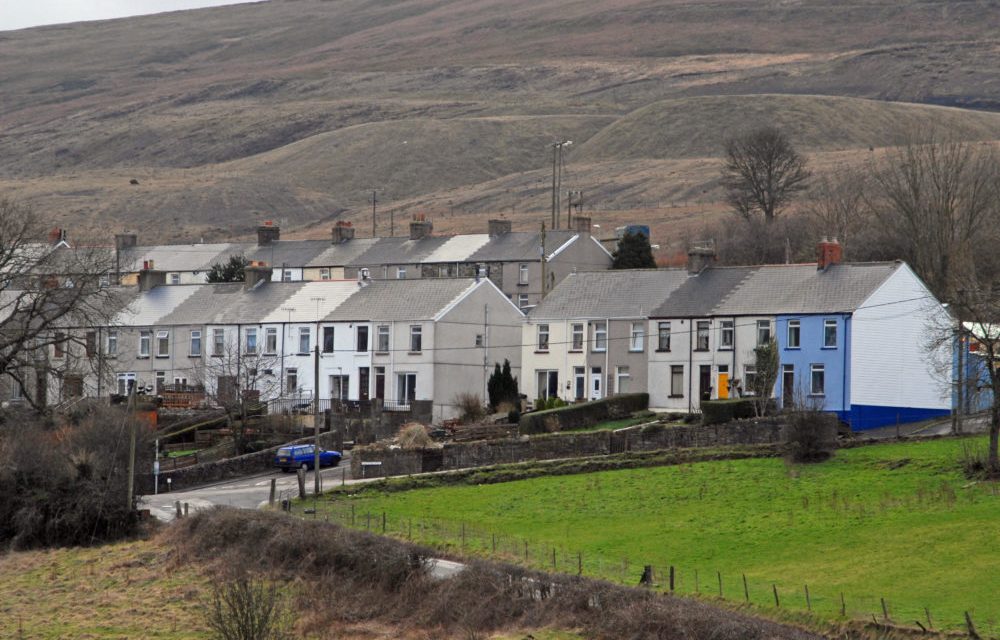 Poverty
Poverty 
Chris Johnes, Chief Executive of Building Communities Trust, considers what the Welsh Government should do to support resilient communities throughout Wales if Communities First is abolished.
As the Welsh Government looks to wind down its Communities First programme, it has announced that it wants to support communities to become more resilient.
This is welcome and timely
It is welcome because it implies more recognition of the need to support communities to use their own inherent strengths, and timely because the economic winds buffeting many parts of Wales are likely to become stronger and harsher. Even before Brexit, the Bevan Foundation was predicting tough times ahead for many in Wales and this has been reinforced by the UK Government’s own recent forecasts.
However, while governments can understand the need for resilience, they can’t create it. The key building blocks of resilience are our health, our ability to provide for ourselves (normally through working), our social networks and our sense of security – most fundamentally in our homes. And these building blocks are mutually reinforcing, both positively and negatively.
The support to develop and maintain these capabilities comes from different sources; a mix of family, the state, individuals’ inherent capabilities (especially with regards to health) and our social circles.
The role of government
In most cases, the government’s role is to nurture, not to create; it can’t suddenly make either individuals or families more resilient (it can in exceptional circumstances make them less resilient), but it can make it more likely that people – individually or collectively – develop or sustain resilience, especially by maximising the chances that people have the right skills for and physical access to well paying work.
In our most affluent areas, where people typically enjoy social networks which cover a wide geographical area, sources of resilience depend on a mix of personal capabilities, money and a confidence that they can make public services work for them.
However, in poorer communities those very local social networks are more important and, for one reason or another, personal capabilities are often weaker, making the additional support from collective action more important.
Into this mix comes the Welsh Government’s early thinking around resilient communities. Their proposed actions, around employability, education and preventing young people being unduly traumatised by adverse experiences make important contributions towards their personal (and in some cases their families’) resilience.
However, added together these proposed action fall into the “necessary but not sufficient” category – and they are notably aimed at the younger parts of any community: a holistic approach is needed that will address the needs and contributions of all ages and recognise the importance of the things that people do together which promote wellbeing and foster resilience.
Community action
This means that Welsh Government needs to add to their existing plans to support the community action which fosters social activities, ranging from informal education to Men’s Sheds and foodbanks – to name just a few – alongside a wide range of leisure activities which bring people together and promote wellbeing.
This will need to focus on support for local community ‘anchor’ organisations, which can provide a fulcrum for local action (and a natural centre for external bodies to work with) operating in ways that are accessible to local people – offering somewhere people actually want to go, not just a last resort in emergencies.
These bodies are already operating in many localities under a variety of different banners. However, by offering a warm welcome, providing space for a variety of community activities and access to public services they can provide integration at a local level in ways that mainstream service providers seem to find almost impossible. As the state retreats, these bodies can also merge the support provided through voluntary endeavour and public services, which are almost always after the same ends – however different the means.



Johnes’ idea that governments just ‘nurture’ not create is a self-defeating delusion in a Wales desperate for innovative and active government – a Wales by the way where many of our ‘communities’ are very weak eco systems for ‘nurturing’ growth and success. Indeed, some of them are actually nurturing failure and chaos. Communities First has achieved little if anything and a lot of money was wasted. Some of this will have been matched with Euro funds also wasted in Wales. we have to be more strategic with our scarce funds. The money wasted on CF would have been well invested in the Valleys Metro.